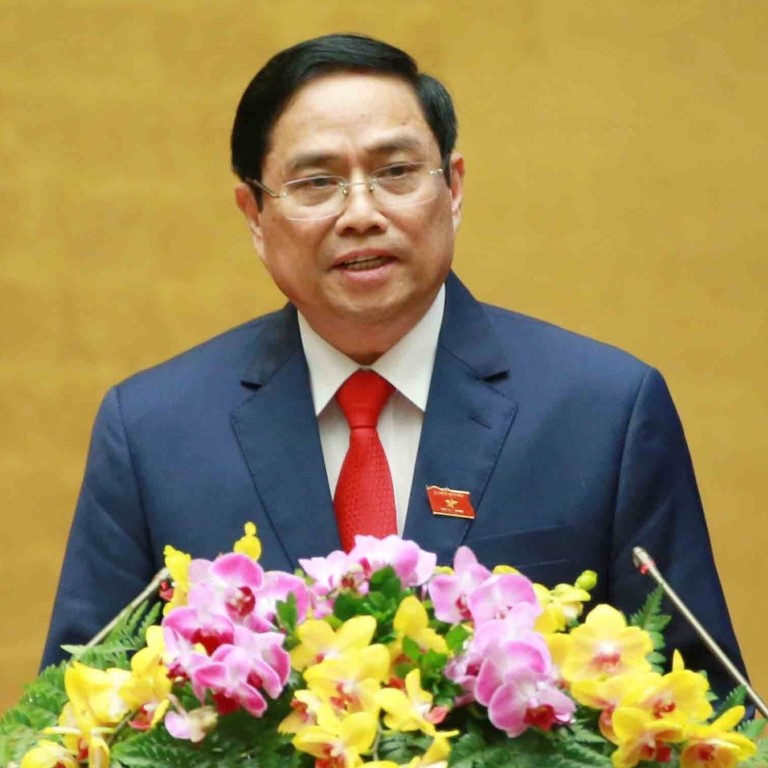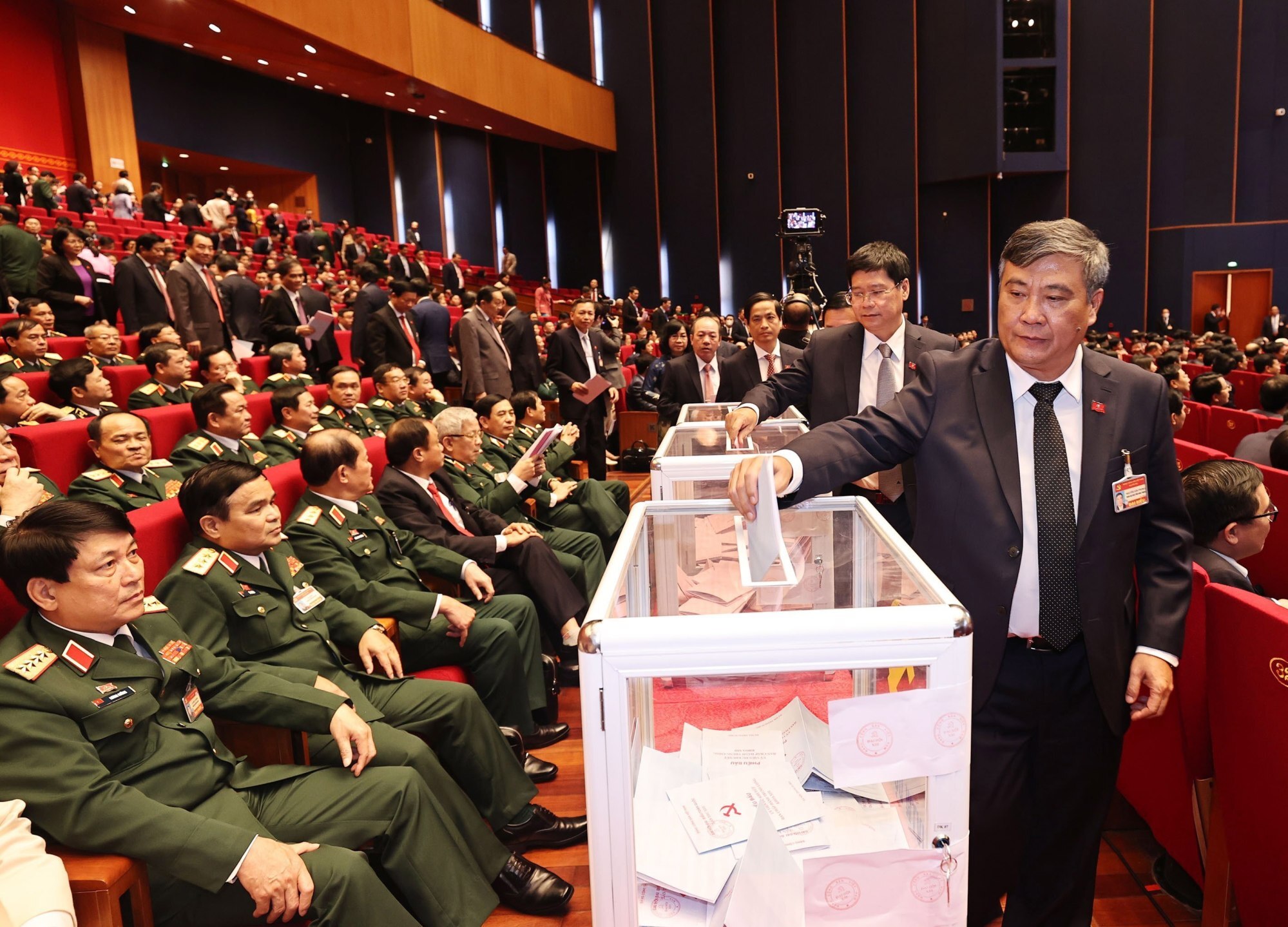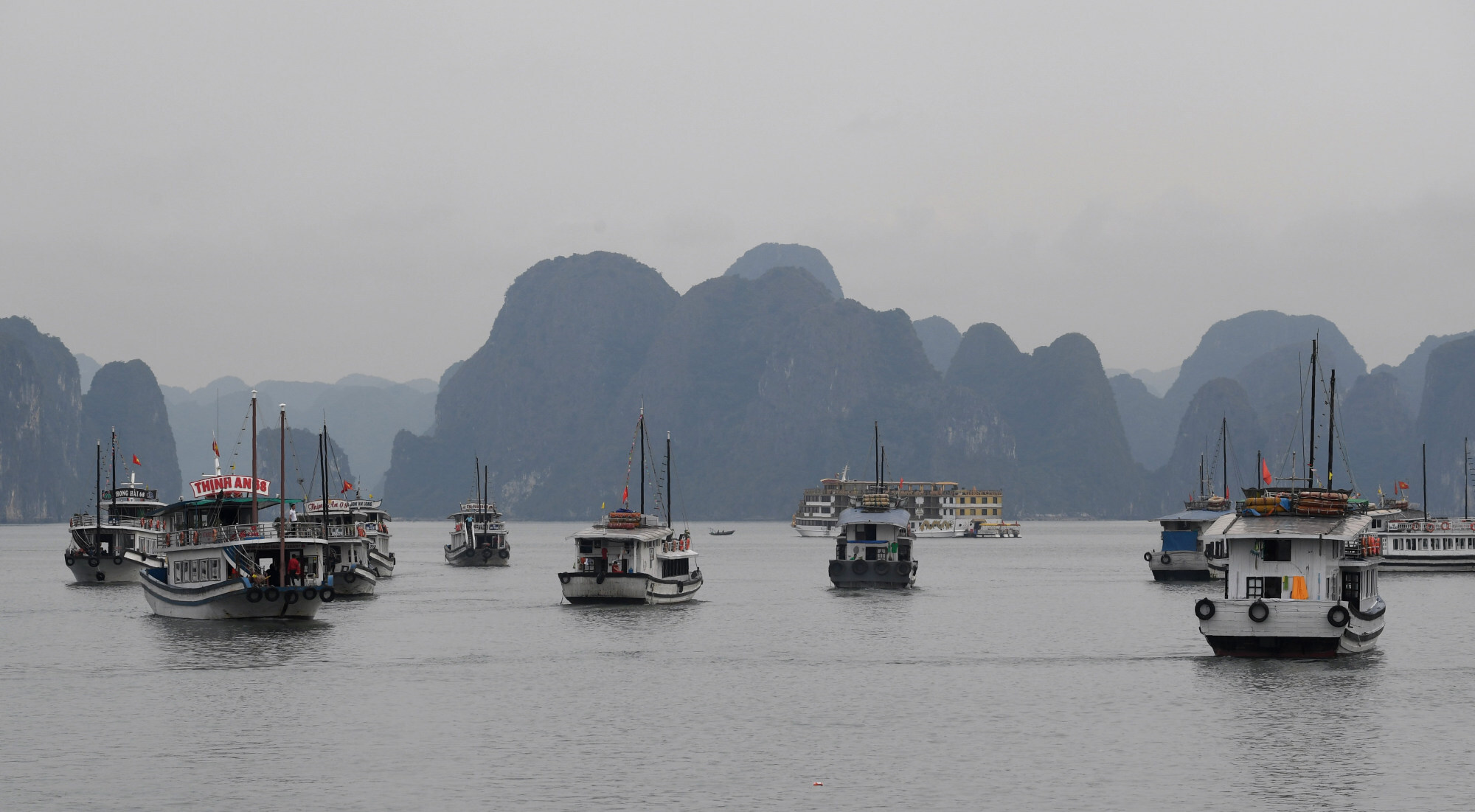
Vietnam’s new PM a surprise, but won’t herald change in approach to US, China: analysts
- Former intelligence agent Pham Minh Chinh was a dark horse candidate to head the government, observers say
- His bid to set up three special economic zones for foreign investment sparked public protests in 2018 over concerns of Chinese influence
“Only a small segment of the people know him. That is why almost all Vietnamese people were shocked and surprised when they learned the news that he would be the new prime minister,” said Pham Quang Minh, a former dean of the University for Social Sciences and Humanities in Hanoi.
But with collective leadership still the norm in Vietnam’s single-party communist state, Minh added that he did not expect 62-year-old Chinh to reinvent national policies.

His job as head of government is unofficially considered the second-most powerful position among what is colloquially known as the “four pillars” of state power. Nguyen Phu Trong, 76, stayed in the top post as general secretary of the Communist Party of Vietnam, while incumbent Prime Minister Nguyen Xuan Phuc, 66, became the president – a largely ceremonial role – in what was widely viewed as a demotion by observers.
Former Hanoi party chief Vuong Dinh Hue, 64, who had been considered a top contender for the premiership, became the National Assembly chairman instead.
In a congratulatory note to Chinh on Monday, Chinese Premier Li Keqiang said Beijing stood ready to work with Hanoi on development strategies and to boost bilateral ties so that both countries could be “good neighbours and friends”.
In a speech before parliament, Chinh said his administration would focus on anti-corruption measures, developing the digital economy and solving problems for industries and businesses. Vietnam would “actively integrate into the international community” and “resolutely and persistently defend its independence, sovereignty and territorial integrity”, he added.
Minh said that Chinh’s most recent job as head of the Politburo’s Central Organisation Commission allowed him to gain immense favour among the political elite. As Chinh was a gatekeeper for top postings, the same Central Committee members responsible for electing the prime minister often had Chinh to thank for their recent career successes. “Among the 200 members of the Central Committee, it is likely that half, or more than half, had reason to be grateful to him,” Minh said.
Chinh’s primary job as prime minister will be to run the country based on the party’s collective decision making under the guidance of Trong, the general secretary. Should he wish to pursue his own policies, he would have to persuade his colleagues to consent first, said Le Dang Doanh, a retired economic adviser to five prime ministers.
Vietnam’s Congress ends with focus on growth, graft and US-China ties
“The prime minister has the duty to actively propose and persuade the Politburo to accept and approve [policy]. I think his predecessors, such as previous prime ministers Vo Van Kiet and Phan Van Khai, had made a lot of effort in the past,” said Doanh, referring to two former leaders he worked with. “Some of these are successful attempts, but there are also unsuccessful ones.”
Chinh has experienced having his agenda derailed before, Doanh said, after he promoted a bill in 2018 to establish three special economic zones allowing for 99-year leases from foreign firms.
“Obviously, it was Chinh who promoted the preparation and submission of the draft bill to the National Assembly. It was him who lobbied and brought out the bill, leading to strong opposition movement from the people, then the National Assembly had to temporarily suspend that bill,” explained Doanh

Minh said that Chinh possibly promoted the bill, which included a special economic zone in Quang Ninh province, based on his experiences attracting foreign investment as its provincial party secretary between 2011 and 2015. A coastal province with rich mineral resources that includes the popular tourist destination Ha Long Bay, Quang Ninh became one of the richest provinces in Vietnam under Chinh. Van Don district, which is located in Quang Ninh, is the site of a special economic zone under development.
“When he became an official of the central apparatus, he did not imagine how strong people reacted to the draft bill on special economic zones, so he had to take a step back,” Minh said.
He added that Chinh was unlikely to introduce innovations on foreign relations, opting instead to follow the “realistic and pragmatic” approach of fostering increasingly warm relations with Washington while avoiding excessively alienating China amid Hanoi’s conflict with Beijing in the South China Sea.
Minh said that Chinh may, however, be more suspicious of the US than his predecessors on a personal level owing to the years he spent as a foreign intelligence agent in the Ministry of Public Security. “He may look at things as through the mentality of the Cold War,” Minh said.
We must manage our own maritime issues, Xi tells Vietnamese party leader
Zachary Abuza, a professor at the National War College in Washington who specialises in Southeast Asian security issues, said that US cooperation had become too integral to Vietnamese policy goals for Chinh to cause much harm to the bilateral relationship.
“Personally he might be more standoffish than Nguyen Xuan Phuc or Nguyen Tan Dung, who were both very comfortable in their dealings with the Americans,” Abuza said, referring to the previous two prime ministers. “But in his announced agenda, I don’t see him really shifting course at all.”
Victor Zhikai Gao, vice president of Chinese think tank the Centre for China and Globalisation and a chair professor at Soochow University, said Vietnam could send a strong message to the world that Asean wished to promote peace, stability and development with all countries, “rather than being forced to pick sides between major countries in the world”.
“When the world is in great flux [as it is] now, keeping peace and stability is of utter importance for all countries and people in our region,” Gao said.
Additional reporting by Maria Siow and Bloomberg


